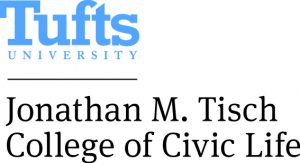Elinor Ostrom (1933-2012) was a political scientist at Indiana University and a leader of the intellectual movement informally known as the Bloomington School. She won the Nobel Prize in Economics in 2009 and was a MacArthur “genius” Fellow and president of the American Political Science Association. She directly influenced the development of Civic Studies.
Contents
Video lecture
Peter Levine describes Ostrom’s basic ideas in Part I (17 minutes) of a free online lecture, and discusses how to apply her ideas in Part II (11 minutes).
Summary
Ostrom defined “common pool resources” (informally known as “commons”) as an important kind of good. Contrary to Hardin (1968) and many others, she argued that it was possible for communities to develop and protect a commons. Whether communities succeeded or failed at this task was a “drama” (a suspenseful story influenced by their own choices), not a tragedy (an inevitable defeat).
Ostrom revealed design principles that increase the odds of success. She and colleagues developed The Institutional Analysis and Design (IAD) Framework for analyzing any institution, whether it is a commons or not. She contributed to the theory of social capital. Her methodologies included game theory as well as close observation of real-world examples, often from the Global South. She and her husband Vincent Ostrom contributed to the idea of polycentricity.
In the 1970s, she found that police departments provided better services, especially as perceived by African Americans, if they were smaller and less centralized (e.g., Ostrom et al 1973). These findings have influenced current movements to reform policing.
Elinor and Vincent Ostrom advocated polycentric governance as both an accurate description of power–governments always encompass multiple, independent components–and a principle of wise institutional design. Thus her recommendation to decentralize policing was part of a larger project of decentralizing power.
Ostrom promoted a form of civic education that would teach people and groups to manage commons more effective and use and improve the design principles. She understood “citizens” not as people with rights defined by nation-states but as people who are able to create and maintain institutions together.
Selected publications
(See references for more.)
Ostrom, Elinor. 1990. Governing the Commons: The Evolution of Institutions for Collective Action. Cambridge: Cambridge University Press.
Ostrom, Elinor. 1995. “Constituting Social Capital and Collective Action.” In Local and Global Interdependence: Heterogeneity and Cooperation in Two Domains, edited by Robert O. Keohane and Elinor Ostrom, 125–60. London: Sage.
Ostrom, Elinor. 1998a. “A Behavioral Approach to the Rational Choice Theory of Collective Action: Presidential Address, American Political Science Association, 1997.” American Political Science Review 92(1): 1–22.
Ostrom, Elinor. 2010. “Beyond Markets and States: Polycentric Governance of Complex Economic Systems.” (Nobel Prize Lecture.) American Economic Review 100, no. 3 (June): 641–72.

